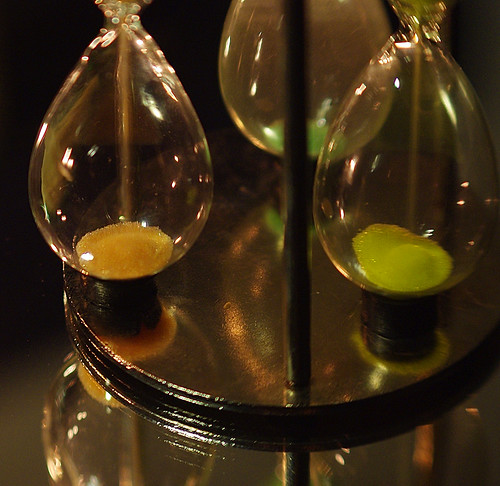Posted by Martin White and Jean Adams
In our first post on what research students can do to make their, and their supervisor’s, lives easier we focused on process. In this second, and final, instalment we address the product(s) of your endeavours.
1. Pay attention to grammar and style. Well written documents are easier to read and increase the reader’s confidence in your abilities. Grammar and style are not just window dressing; they are an essential part of good communication. You may find the BMJ’s house style guide useful.
1. Pay attention to grammar and style. Well written documents are easier to read and increase the reader’s confidence in your abilities. Grammar and style are not just window dressing; they are an essential part of good communication. You may find the BMJ’s house style guide useful.
 |
| Pay attention to grammar and style |
2. Use sub-headings. They help you structure your text and keep related pieces of information together. They also help the reader understand where your argument is leading.
3. Be critical in your literature review. Try to go beyond just describing the literature, to critically interpreting it. This doesn’t necessarily mean providing a detailed critique of every paper you read. It means identifying the major knowledge gaps in the literature, identifying common methodological limitations, identifying limitations of existing theories, and suggesting reasons for all of these things. This requires you to think for yourself and put your own, personal stamp on your interpretation of the reading you’ve done.
4. Frame research questions, not aims and objectives. Try to state clearly the scientific rationale for your research, identifying the gaps in knowledge that you aim to fill, and then specify the question that needs to be answered to fill each gap. In public health, research questions tend to be preferred to null and alternative hypotheses.
5. Separate your methods, results and discussion. Methods say what you did. Write them like a recipe book, which others can follow. Reference established techniques. Don’t muse about which methods might have been better (reserve that for the discussion). Results say what you found. Don’t repeat what is in tables, figures or boxes in the text. Don’t veer off into discussion of the results. The discussion interprets your findings, sets them in the context of existing knowledge and discusses their strengths, limitations and implications.
6. Don’t confuse association with causation. Finding a statistically significant association between two variables does not necessarily mean that one causes the other. Be careful when you are writing not to imply causation unless you have good evidence of it.
7. Structure your discussion. Many people find the discussion the hardest section of their thesis, dissertation or paper to write. One way of easing the pain is to use the sub-headings suggested by Docherty and Smith (1999).
8. Don’t repeat yourself. Repetition is boring, insults the reader by assuming they didn’t read it the first time you said it, and is a waste of words. Read and reread your drafts to eliminate repetition.
3. Be critical in your literature review. Try to go beyond just describing the literature, to critically interpreting it. This doesn’t necessarily mean providing a detailed critique of every paper you read. It means identifying the major knowledge gaps in the literature, identifying common methodological limitations, identifying limitations of existing theories, and suggesting reasons for all of these things. This requires you to think for yourself and put your own, personal stamp on your interpretation of the reading you’ve done.
4. Frame research questions, not aims and objectives. Try to state clearly the scientific rationale for your research, identifying the gaps in knowledge that you aim to fill, and then specify the question that needs to be answered to fill each gap. In public health, research questions tend to be preferred to null and alternative hypotheses.
5. Separate your methods, results and discussion. Methods say what you did. Write them like a recipe book, which others can follow. Reference established techniques. Don’t muse about which methods might have been better (reserve that for the discussion). Results say what you found. Don’t repeat what is in tables, figures or boxes in the text. Don’t veer off into discussion of the results. The discussion interprets your findings, sets them in the context of existing knowledge and discusses their strengths, limitations and implications.
6. Don’t confuse association with causation. Finding a statistically significant association between two variables does not necessarily mean that one causes the other. Be careful when you are writing not to imply causation unless you have good evidence of it.
7. Structure your discussion. Many people find the discussion the hardest section of their thesis, dissertation or paper to write. One way of easing the pain is to use the sub-headings suggested by Docherty and Smith (1999).
8. Don’t repeat yourself. Repetition is boring, insults the reader by assuming they didn’t read it the first time you said it, and is a waste of words. Read and reread your drafts to eliminate repetition.
9. Proof read. Once you have a first draft that includes the key points you need to cover, re-read and revise to hone your message. Consider each sentence individuallly and ask yourself if there is a clearer way to convey the idea. Think particularly about if you could use fewer words and less jargon.
10. Try to write your thesis with publication(s) in mind. In a PhD you can nest each distinct piece of work in a separate chapter, each of which will lead to a paper. If you structure these chapters like a paper, then your publishing challenge is made easier. For an MSc or undergraduate research project, try to structure your whole dissertation like a paper if appropriate.











